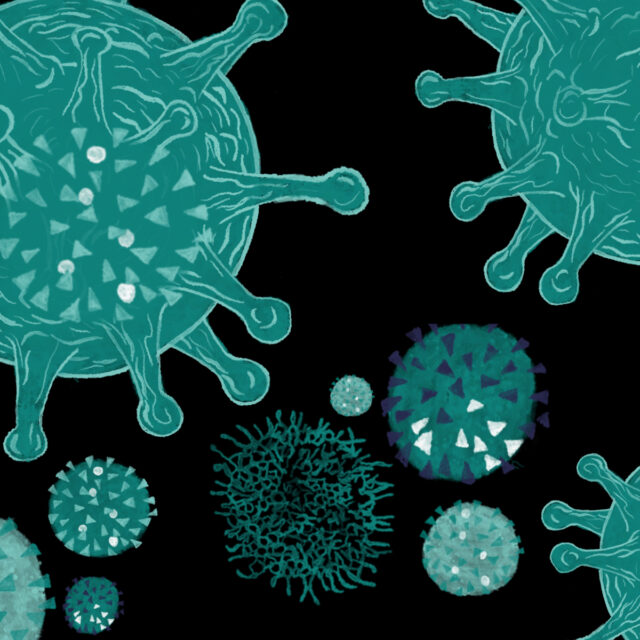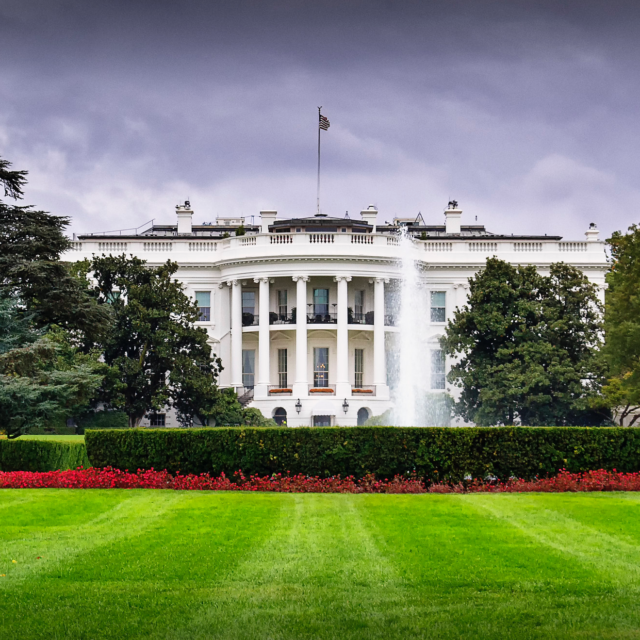With President Barack Obama’s last full day in office drawing near, we wanted to take a look back at the times he — and First Lady Michelle Obama — were key figures in the fight against poverty and preventable disease.
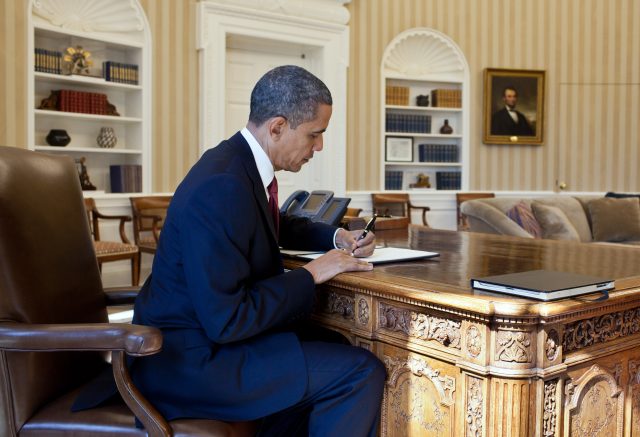
(Official White House Photo by Pete Souza)
The Electrify Africa Act is signed into law
The president helped 15 million more people get access to electricity with Power Africa and signed the Electrify Africa Act to continue its good work. From beginning to end, the effort to make the Electrify Africa Act a law was an exercise in bipartisanship, which is an accomplishment that we were extremely proud and honored to have been a part of. The passage of Electrify Africa is a testament to how Republicans and Democrats can come together on issues of international development and assistance and find solutions that work.
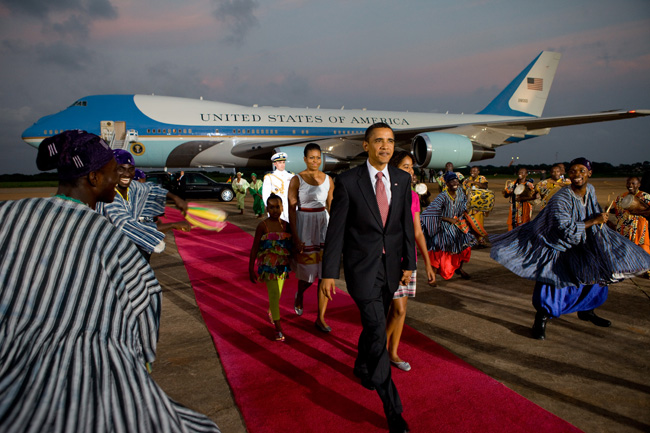
President Barack Obama and First Lady Michelle Obama, along with Malia and Sasha, participate in a departure ceremony at Accra airport in Ghana, July 11, 2009.
(Official White House photo by Pete Souza)
A commitment to global health and nutrition:
President Obama expanded PEPFAR, quadrupling the number of people receiving HIV/AIDS treatment to nearly 11.5 million, including 1.1 million children. He also made sure that the U.S. was the top emergency food aid donor, reaching more than 400 million people, as well as the top donor to the Ebola crisis, providing $2.5 billion. He also created the Feed the Future initiative, which, in some countries, has decreased malnutrition by up to 40% and poverty by up to 36%.
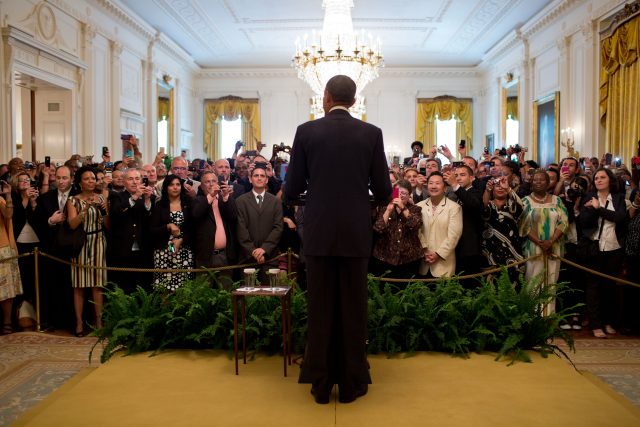
President Barack Obama delivers remarks at the White House International AIDS Conference reception in the East Room, July 26, 2012. (Official White House Photo by Pete Souza)
“A girl from Tanzania and what she told President Obama“
When we first met Tanzanian teen Eva Tolage, she had just written a letter to President Obama. Eva wrote about the challenge of hunger, water, electricity, and corruption. She wrote about the challenges of being a girl. At the UN Summit later that year, President Obama actually responded to Eva, saying “Today, I say to Eva and hundreds of millions like you, we see you. We hear you. I’ve read your letter and we commit ourselves as nations as one world to the urgent work that must be done.”
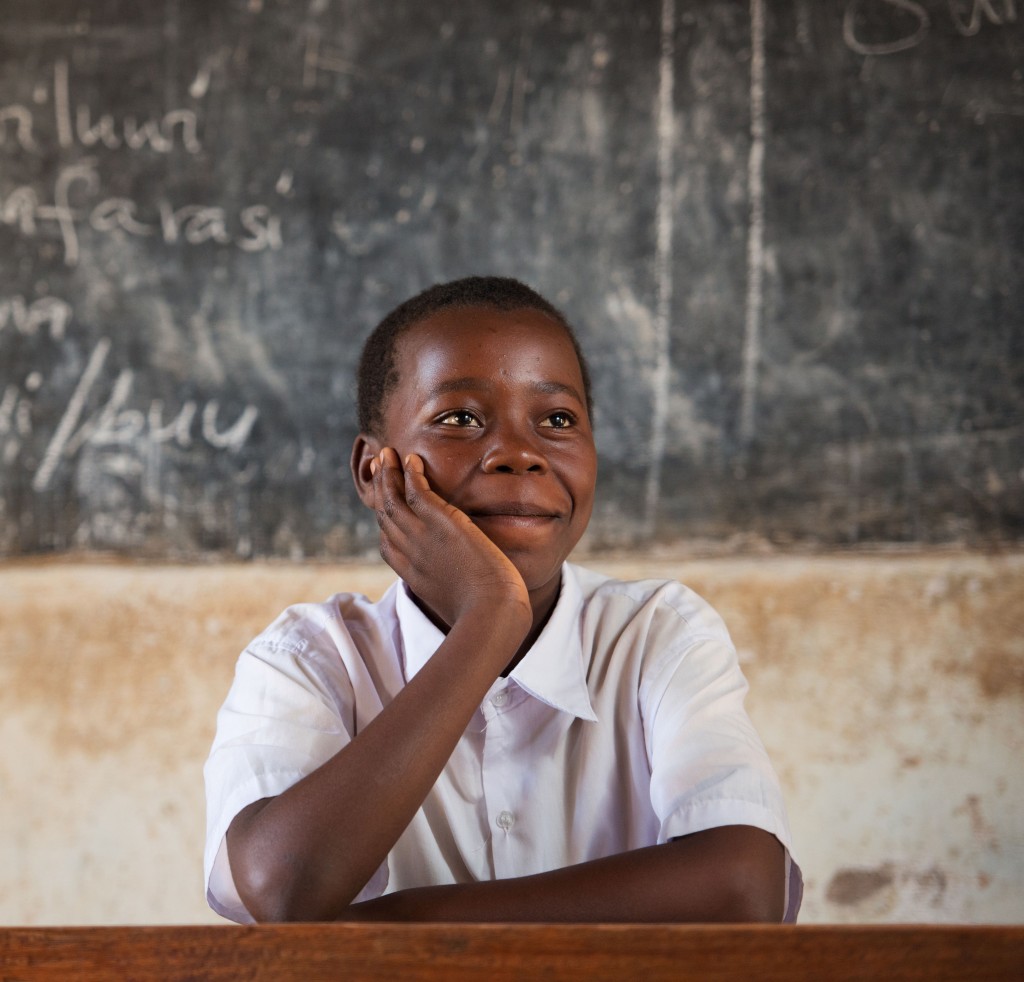
Eva Tolange poses for a portrait at Malinzanga Primary School in Malinzanga, Tanzania, on December 15, 2014. (Photo credit: Daniel Hayduk)
In March 2015, the President and First Lady launched Let Girls Learn, which brings together several organizations to address the challenges that prevent girls from getting an education. 130 million girls around the world are out of school. When girls get an education, they are less likely to become child brides, contract HIV, and they have greater economic opportunities for the rest of their lives, which is good for everyone. This is an issue that ONE members are passionate about, and we’re thankful that it’s important to the Obama family, too.
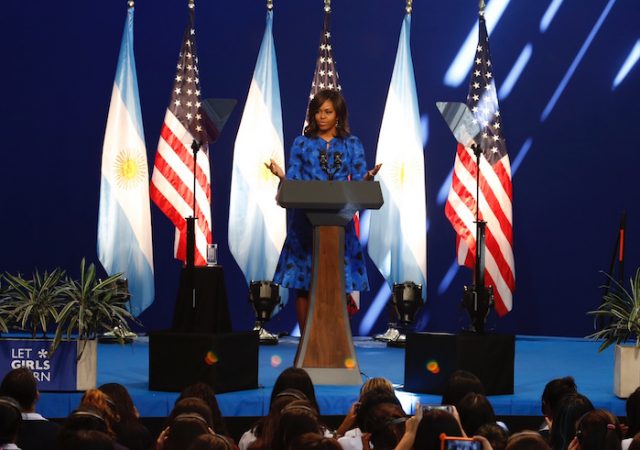
First Lady Michelle Obama discusses the Let Girls Learn program in Buenos Aires on March 23, 2016. (Photo credit: Embajada de EEUU en la Argentina/Wikimedia Commons)
In his final State of the Union address, President Obama spoke about many of our issues:
“Leadership means a wise application of military power, and rallying the world behind causes that are right. It means seeing our foreign assistance as part of our national security, not charity… When we help African countries feed their people and care for the sick, that prevents the next pandemic from reaching our shores. Right now, we are on track to end the scourge of HIV/AIDS, and we have the capacity to accomplish the same thing with malaria — something I’ll be pushing this Congress to fund this year.”
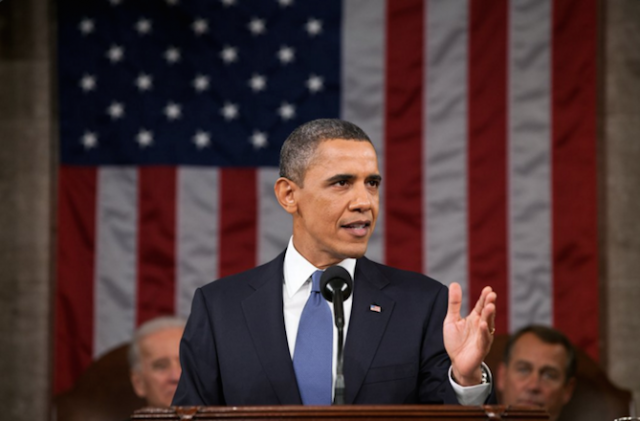
Photo credit: twitter.com/WhiteHouse
We’ve still got lots of work to do, but today, let’s say thanks to President Obama for how far we’ve come. And just like he said last week, let’s get ready to show up, dive in, and stay at it.

